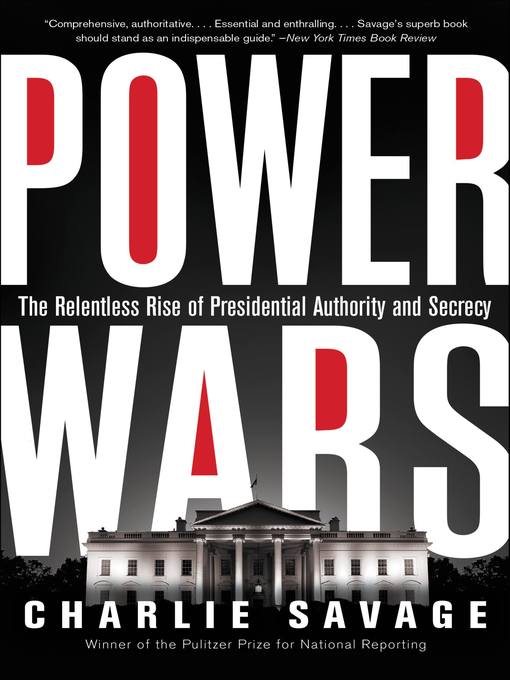
Power Wars
The Relentless Rise of Presidential Authority and Secrecy
کتاب های مرتبط
- اطلاعات
- نقد و بررسی
- دیدگاه کاربران
نقد و بررسی

November 9, 2015
A government of lawyers wrangles over the War on Terror in this sprawling study of national security policy in the Obama Administration from Pulitzer-winning New York Times correspondent Savage (Takeover). He follows law-professor-in-chief Obama, Attorney General Eric Holder, and their legal advisers as they try to square statutes, court rulings, and constitutional principles with harsh, dubious policies on terrorism detainees, Guantánamo Bay prisoners, targeted killings, drone strikes, warrantless NSA surveillance, and prosecutions of whistle-blowers. In a cogent critique, Savage portrays Obama's "lawyerly administration" as more concerned with legal authorization than civil liberties, embracing Bush administration policies that dismayed the liberal base. Working from insider interviews, Savage foregrounds human drama ("in Montclair, New Jersey, Jeh Johnson tried not to brood") as policymakers react to Republican political attacks and events such as the failed underwear bombing of an airliner. But this is largely the dry drama of attorneys taking meetings, pondering Talmudic legal niceties (how long can a suspect be held on a ship according to the Geneva Conventions?), and writing climactic memos. Savage's doorstop-size tome is a comprehensive, reasonably accessible account of national security legal issues that often bogs down in eye-glazing details of FISA courts and the like; this is a political saga that only a lawyer could love. Photos.

It costs $3 million per year to house a single prisoner at Guantanamo Bay and $30,000 per year to house a prisoner in a federal maximum security prison under similar conditions. Why, given that "spectacle of astronomical waste," hasn't Guantanamo been closed?By definition, the presidency of Barack Obama is post-9/11, so New York Times Washington correspondent Savage's (Takeover: The Return of the Imperial Presidency and the Subversion of American Democracy, 2007) subtitle would seem superfluous. It's not, of course, since it speaks to the fact that after 9/11, a new security state came into being that, some would charge, makes whomever occupies the White House seem almost an afterthought. Certainly, as Savage details at considerable length, there are continuities between the George W. Bush administration and the Obama White House in the so-called global war on terror. Not least of them is Guantanamo, which Obama has been agonizing over since coming into office but which remains open despite his repeated pledges to close it. Of course, he has another year to do so, but by Savage's overlong but comprehensive account, much of what has occupied the administration has been lawyerly parsing of what constitutes torture and other fine distinctions. Said Eric Holder to this point, " 'Due process' and 'judicial process' are not one and the same, particularly when it comes to national security." Agonize they may, but Obama and his lieutenants have overseen a dramatic expansion of the security state and its abilities to act, whether to kill American citizens abroad or monitor their phone conversations at home. Savage does some parsing himself to sort out the administration's legal arguments: is Obama, he wonders, violating the rule of law or civil liberties? Either way, hawks have applauded Obama for "keeping many...major features of what Bush and Cheney had created," even as civil libertarians lament the continued erosion of individual rights--and even as the Obama administration positions itself as being merely pragmatic. A solid political expose delivering news likely to please few--and certainly not the White House. COPYRIGHT(1) Kirkus Reviews, ALL RIGHTS RESERVED.

























دیدگاه کاربران